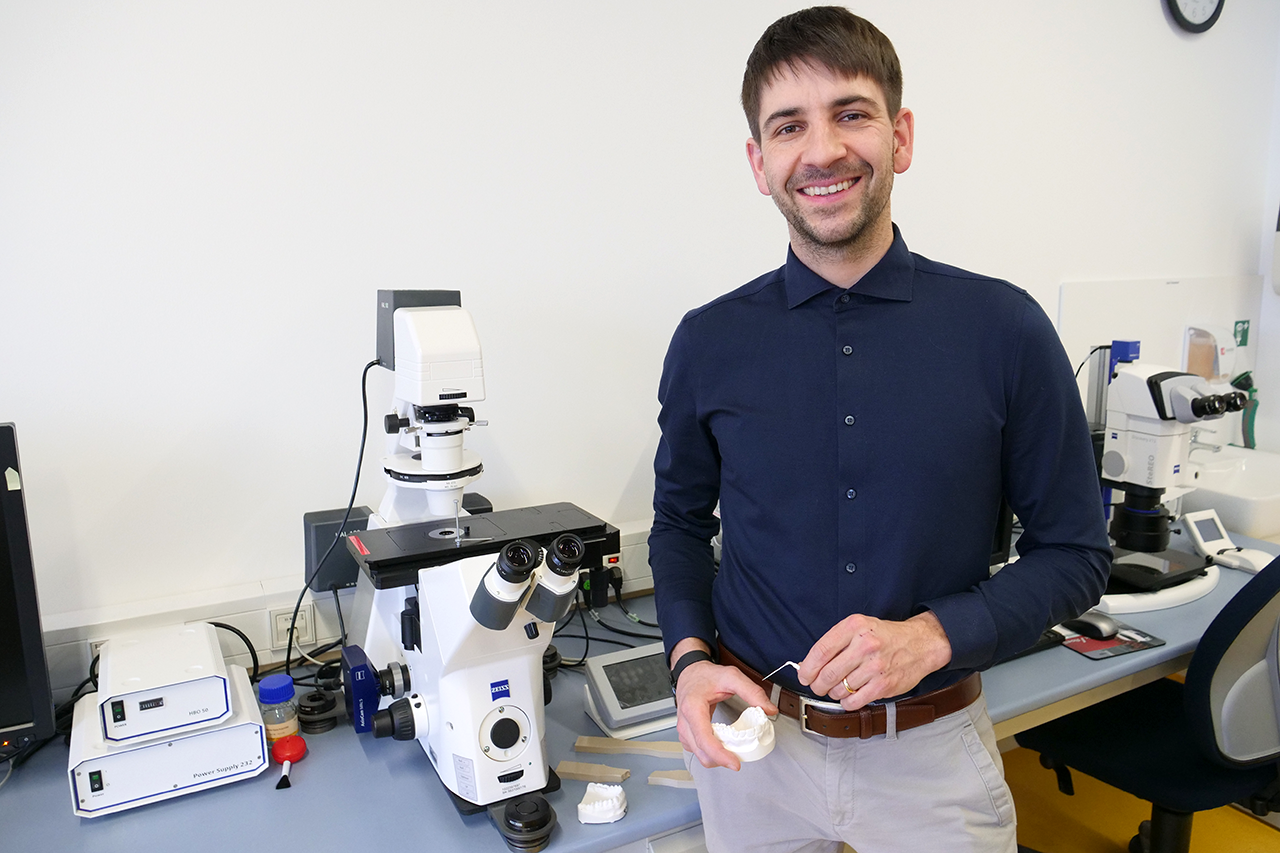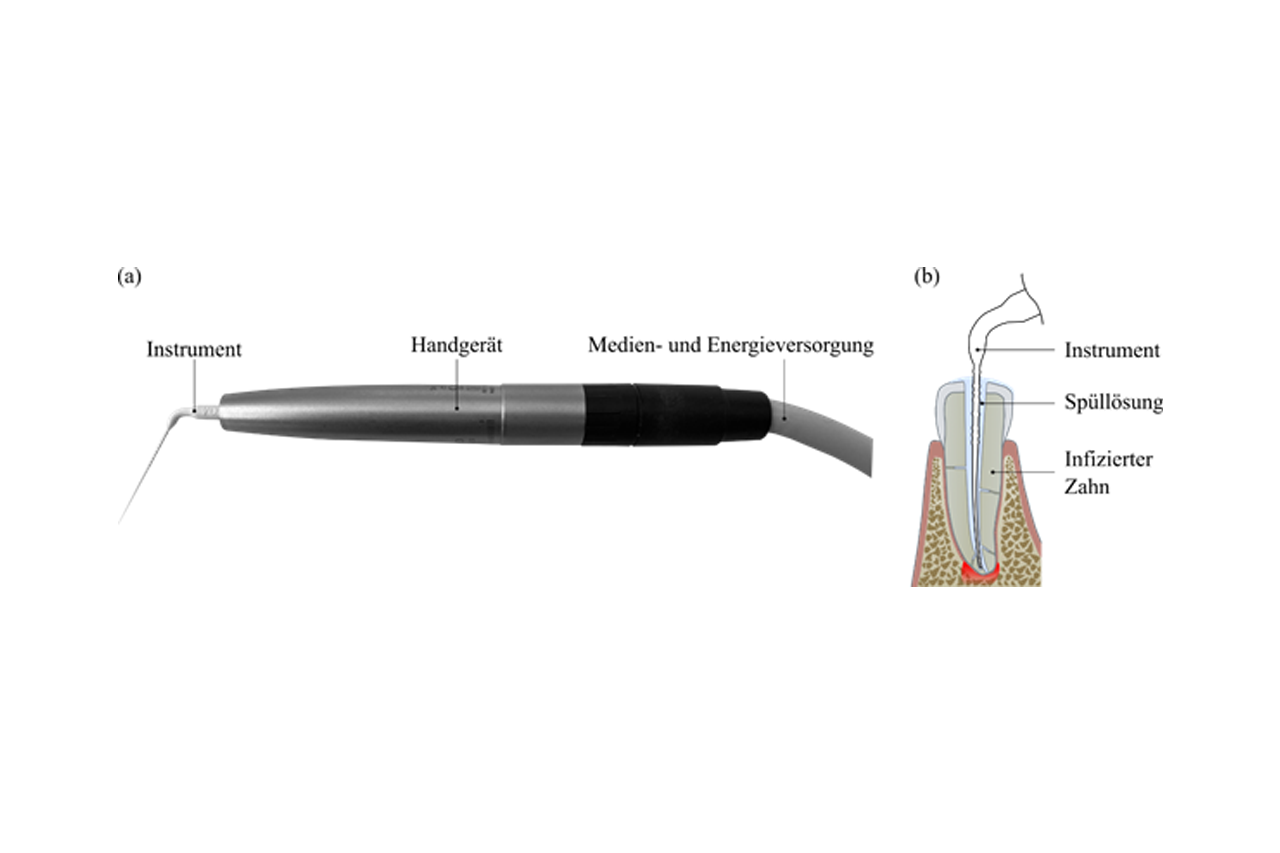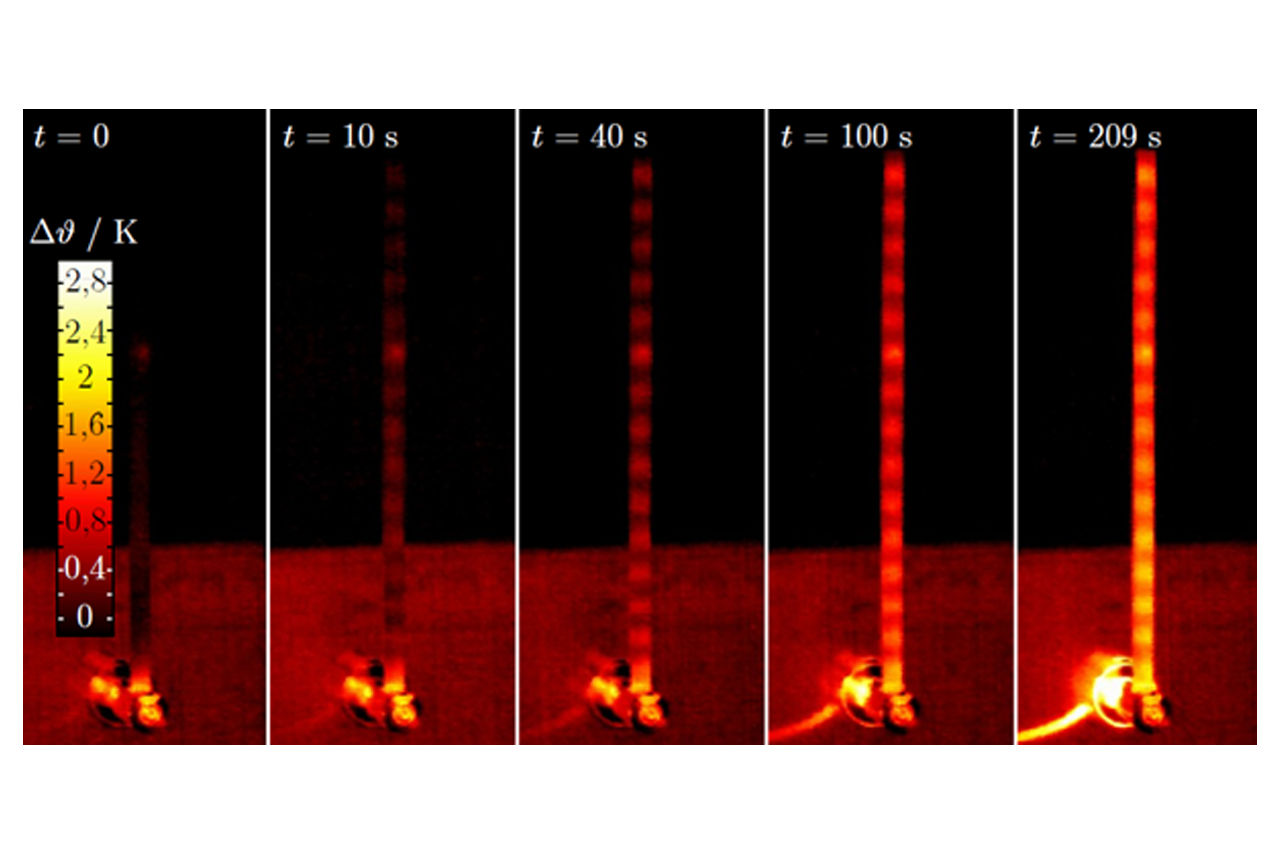In his doctoral thesis on the development of dental instruments, Dr. Michael Kucher researched how their development process can be improved through the use of simulation-based methods.

For his doctoral thesis "High-frequency stressed polymer structures for use as endodontic instruments" , TU Dresden graduate Michael Kucher researched how the development process for dental instruments made from polymer materials can be improved by using simulation-based methods. His research results contribute, among other things, to the design and establishment of high-frequency vibrating polymer instruments for root canal cleaning.
Defence as a video conference
On 19 December 2022, Dipl.-Ing. Michael Kucher, chaired by Prof. Dr.-Ing. habil. Maik Gude, defended his dissertation written at the Institute of Lightweight Engineering and Polymer Technology (ILK) at TU Dresden. The doctoral thesis was supervised by Prof. Dr.-Ing. Niels Modler (ILK, TU Dresden), Prof. Dr.-Ing. Martin Dannemann (Westsächsische Hochschule Zwickau) and Prof. Dr.-Ing. habil. Markus Kästner (Institute of Solid Mechanics, TU Dresden). Another member of the doctoral committee was Prof. Dr.-Ing. habil. Thomas Wallmersperger (Institute of Solid Mechanics, TU Dresden).
The research work was the result of a DFG joint application between the ILK and the Polyclinic for Tooth Preservation with Paediatric Dentistry (ZMK) of the Carl Gustav Carus University Hospital at TU Dresden.
Research for the preservation of natural teeth
As part of his interdisciplinary research work, Dr Michael Kucher analysed the overall system behaviour of endodontic instruments for disinfecting human root canal systems from an engineering point of view (see Fig. 1, b). Kucher devised and developed experimental and numerical methods for the use of the thermoplastic biocompatible polymer polyether ether ketone (PEEK) as a material for these dental instruments.
"In my work, I contribute to the targeted, material-specific and vibration-optimised design of future dental instruments for root canal cleaning, which has a significant impact on the long-term preservation of natural teeth during root canal treatment. This contribution includes the experimental recording of the tribological system, consisting of the dental tissue and the instrument, the characterisation of the dynamic deformation behaviour of the polymer at high vibration frequencies and the continuum mechanical description of the contact-related transient vibration behaviour using the finite element method," explains Dr Michael Kucher.

"Metallic and polymer endodontic instruments - known in practice as endo-irrigation tips or cleaning attachments - are currently in use. Polymer instruments offer a significant advantage over metallic instruments due to the low level of damage to the dental tissue. However, these instruments have so far primarily been used at frequencies in the lower kilohertz range and therefore clean less efficiently. Increasing the oscillation frequency of polymer instruments could increase the flow excitation of the rinsing solution and thus improve the cleaning effect of these instruments," emphasises Dr Michael Kucher.

"A wide variety of requirements arise for this application, such as the avoidance of failure-critical heating processes. Figure 2 shows an example of the typical heating behaviour of a test specimen made of the polymer PEEK excited in the clamping. In the future, excessive heating and the associated thermal failure of the polymer instruments must be avoided by optimising the vibration-compliant design and adapting the mode of operation. By applying the simulation-based development method developed, the aim is to design highly efficient cleaning polymer instruments with a low risk of breakage and a minimally invasive mode of operation," explains Dr Michael Kucher.
And what does the future hold?
Dr Michael Kucher will continue to work in research, especially application-oriented research into polymer-based lightweight materials. He currently heads the interdisciplinary specialist group at the Chair of Lightweight Construction with Composite Materials, which deals with the recycling of fibre composite structures and the structural integration of electrical energy storage systems, among other things. In future, he will contribute his expertise in the fields of FE simulations, material modelling and the experimental characterisation of polymer materials to the Chair's research.
We would like to congratulate Dr Michael Kucher on the successful completion of his dissertation and wish him all the best for his future career and life and continued success in his work at HTWK Leipzig.